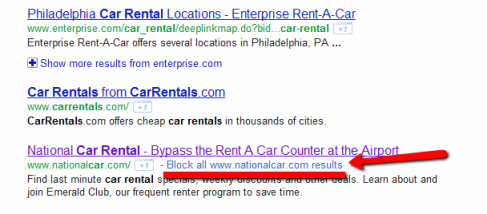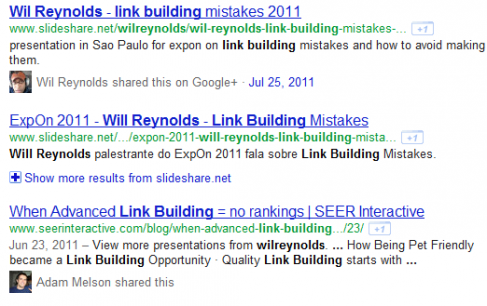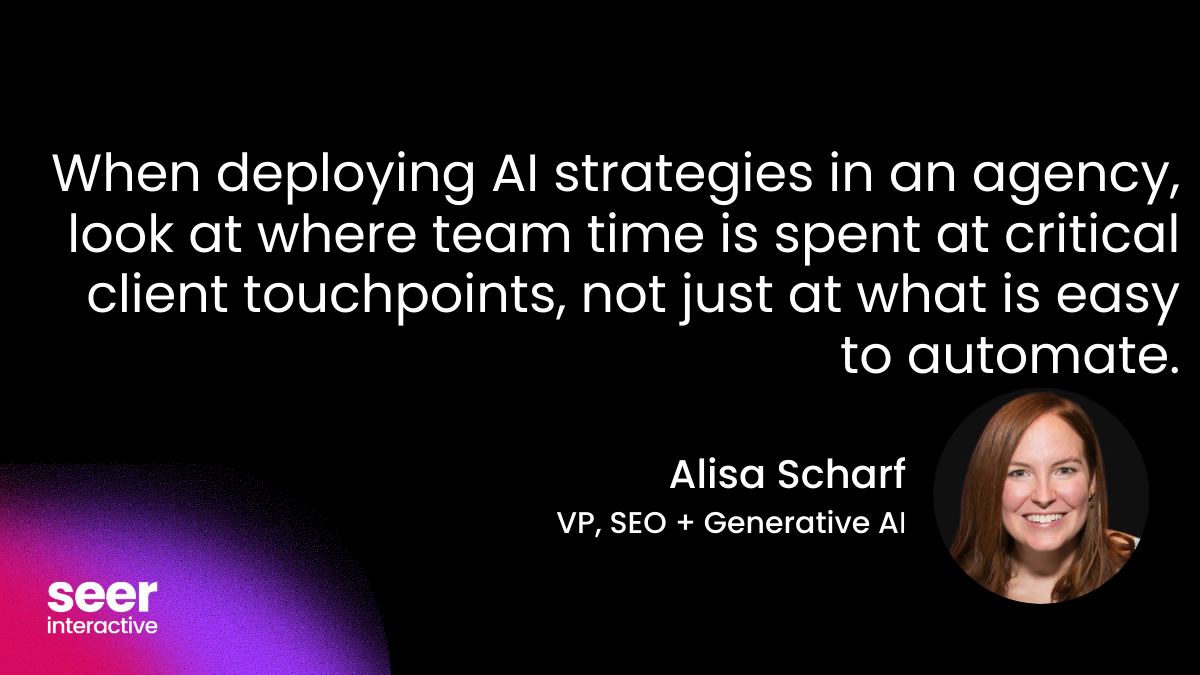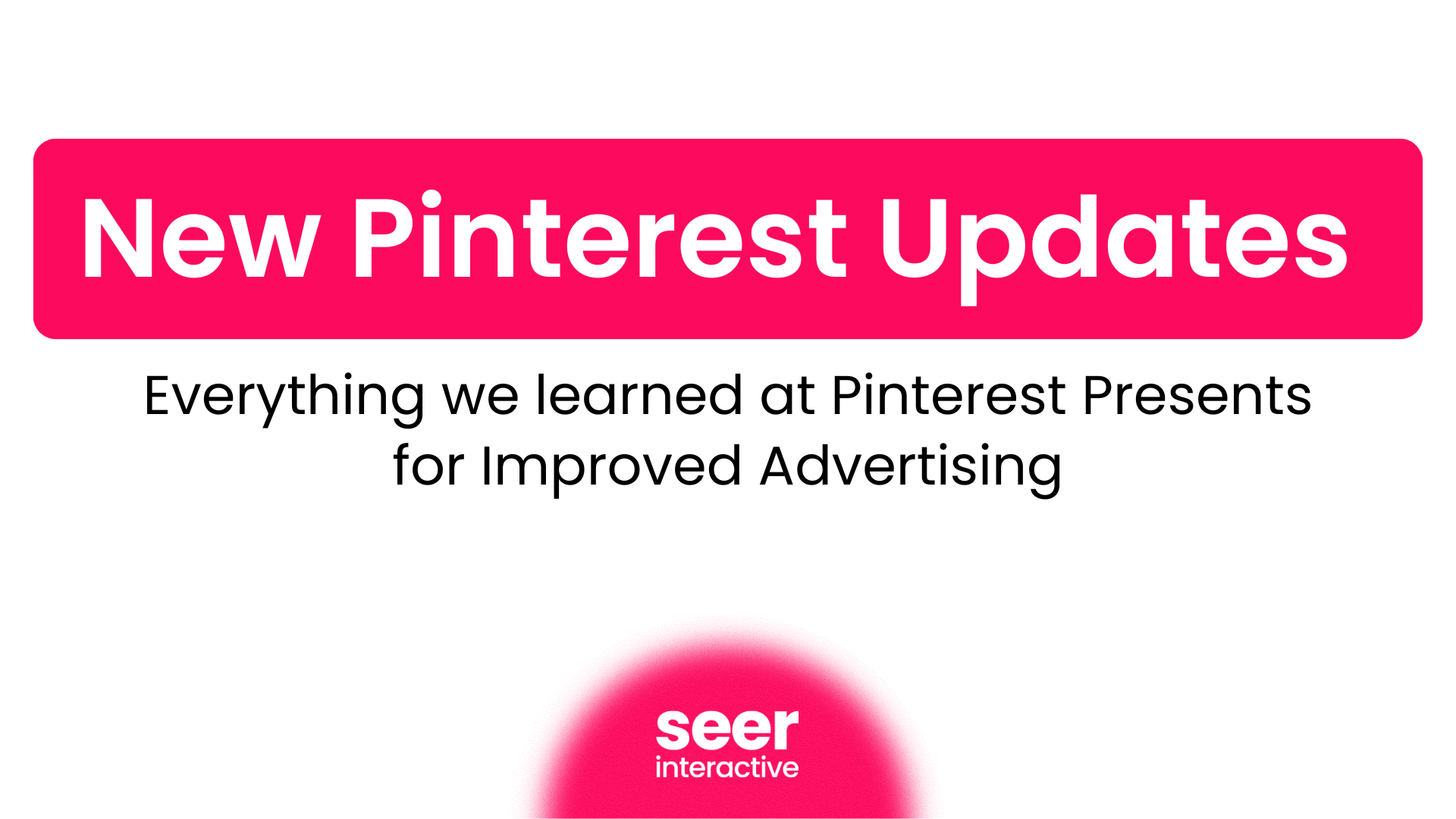In addition to some awesome carved pumpkins, Google gave users and advertisers another Halloween treat this year- Why These Ads. Why These Ads, is Google's latest attempt (and perhaps a dig at Facebook) to give users a more personalized search experience. These links, which appear above top and side results, give users the option to control their search experience by opting out and blocking advertisements.
Upon clicking Why These Ads, users are given a few options. Below I've given a quick explanation of the available options:
1. Block- If a user chooses to block an advertiser, they are not shown any ads from that advertiser or any other ads which link to that website. As of now, users are eligible to block up to 500 advertisers total.
2. Opt Out- If a user chooses to Opt Out of advertisements, Google no longer uses additional information (demographics, location, past searches, etc.) to personalize that user's search. (These options can be set at a campaign and browser level) Users can still be shown ads, however, the targeting might not be as precise. Additionally, if a user chooses this option they lose the ability to block specific advertisers. Now, that we have an understanding of what these options are, I want to discuss what effects these Opt Outs & Blocks could have.
Now, that we have an understanding of what these options are, I want to discuss what effects these Opt Outs & Blocks could have.
Blocks
I think it is a given that no one likes to be blocked. While advertisers won't know who blocked them, it doesn't seem fair that if blocked, there is nothing advertisers can do outside of creating a whole new account on a whole new website, if they hope to reach that user again. In addition to this, there is something else that bothers me about user blocking, and it relates back to my good old friend, Session Based Matches.
As you may have noticed in my rant on Session based matches, I don't think Google is always the best at personalizing. I mean if you’re showing me a sales training ad, when I searched for eye exercises, I'm going to be annoyed as both a user and an advertiser. Maybe even to the point, where I'd contemplate blocking the sales training ad. However, what happens if later on down the road, I am looking for sales training, and because I blocked that advertiser, I might be missing out on something great. Sure I could unblock that advertiser, but will I remember how to do that?
Additionally, as noted in Google's explanation of Blocked advertisers- the particular ad blocked and any additional ad that blocks to that site will no longer appear in Gmail or Google Search. So if I block the-art-institutes.info because I found their cooking class to be irrelevant, am I also blocking their media arts, fashion classes ads which are mentioned on the same landing page domain? What if this would have been a relevant site for a "fashion class" search?
I'm sure these aren't the only possible issues with User Blocking, but these two stood out to me. Thankfully though, there is one positive, Google confirmed that the number of blocks will not affect Ad Rank or Quality Score which let's face it, is pretty necessary. Otherwise, advertisers would just attack their competitors with blocks.
Opt Out
When it comes to opting out, I'm torn. Sometimes, I wish Google wouldn't try to personalize my searches. However, sometimes I love that it does. My ideal wish would be that instead of implementing this and that, Google would just work on improving it. Maybe if Google showed me eye exercise ads instead of sales training ads when my query was eye exercises, I wouldn’t be so anti Google's personal touch.
Initial Findings
Well now that I've gone on another rant, I also wanted to share some initial findings. In Wired's blog, they mention-"Out of every 15 users who get to the ad preference manager, 10 do nothing, 4 edit specific preferences, and only 1 opts out of behavioral targeting entirely". So while it hasn't had a huge impact in its 4 live days, I definitely think this is something to keep on your radar.
Why These Ads & SEO?
To conclude this post, I wanted to touch on how this change relates to SEO. So if a user blocks a PPC domain it is not blocked from organic search engine result pages (SERPs), but there are certain similar things that Google has rolled to improve the user experience when navigating the organic results. In order to shed some light on these things I’ve called upon my co-worker, and SEER SEO team member, Abbott Shea.
Hello! For my SEO cameo I’m going to go over some of the things that Google has rolled out in the past year that affect us SEOs.
Block All
Firstly, a feature that Google introduced along with their Panda Update, which was rolled out earlier this year, is the ability for a user to block a domain entirely from the organic search results. When someone clicks on a result for a certain search query and then clicks back to the SERPs they have the ability to block the domain that they just clicked through to. To show this in action I did a search for “car rentals”.
You see? So I clicked through on the National Car result and clicked back, and now I have the ability to block all results from nationalcar.com in my future searches – insert evil laugh here.
Now I wouldn’t do that, because National Car seems like a legitimate resource and I’m sure they have all the answers for all my “car rentals” questions. But there are sites out there that have manipulated Google and fooled them into listing their site at the top of the results for a certain keyword without actually offering any helpful content for the user searching that particular phrase. Like this result that showed up in the second spot for “loans for seniors”, and wouldn’t answer any of the tough questions a senior citizen looking for loans would need answered.
Google Plus
One other thing that Google has done is serve up content that has been shared by people in my Google + circles or written by people in lots of Google + circles, something like 600 or more, higher up in the SERPs and with a nice photo of that person. For instance, it seems that my friends Adam and Wil have shared some articles about “link building”…
… and “wil Reynolds”. I did have to cheat a bit with my query in order to show you exactly what I was talking about, but that’s because I have only very modest sized circles (cue the violins, maestro!). The point is the same – Google is serving up relevant content that your friends/connections have showed interest in assuming that you will be interested in it too.
Really it’s not a bad assumption. This is a very brief overview of the feature, but you can find out more in Wil’s article on Google + and Rankings.
(Not Provided)
Lastly, Google has recently rolled out a feature that doesn’t change what the user sees, but does affect SEOs. They have started protecting a user’s information by grouping users that are logged into their Google accounts under the “(not provided)” umbrella in Google Analytics. This means that for a user that is logged into their Google account (Gmail, Google +, etc.) and visits our site through the organic search results, it makes it nearly impossible for us to see what KW that visitor came in on.
This drive us SEOs nuts… and then Rachael Gerson comes along and puts at ease. To see how Rachael turns impossible into nearly impossible check out her article on Not Provided in Analytics.
What are your thoughts on Google's latest "treats"? We would love to hear your thoughts, please share below and follow Abbott and me on Twitter!




